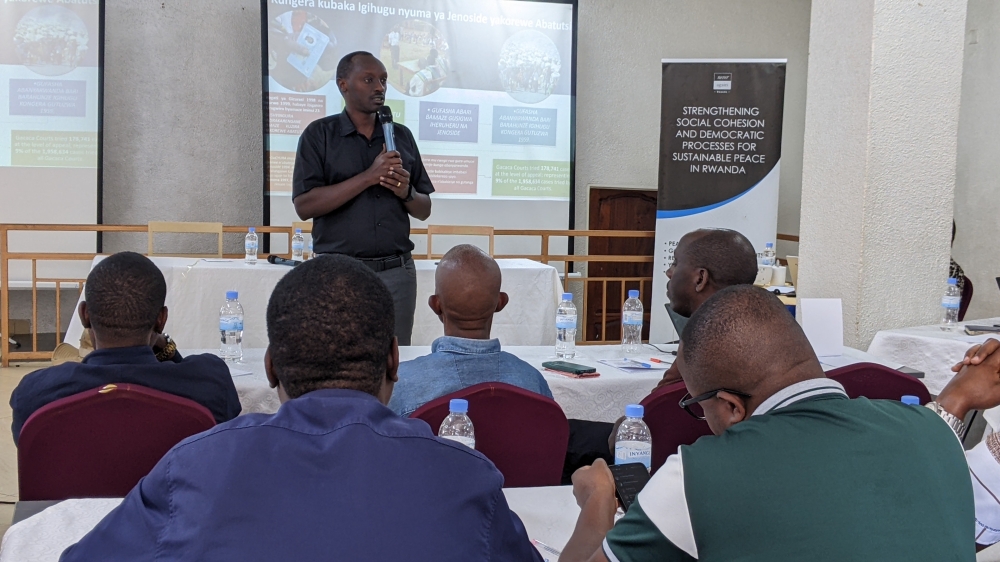President Paul Kagame this week returned from Scotland where he received an honorary doctorate in law. As evidenced from all different angles; from across the border in Goma to the lecture hall Kagame spoke at in Glasgow, law is an important thing.

President Paul Kagame this week returned from Scotland where he received an honorary doctorate in law. As evidenced from all different angles; from across the border in Goma to the lecture hall Kagame spoke at in Glasgow, law is an important thing.
What you see when you look at the pictures from the ceremony—previous ones have also been held for Donald Kaberuka, president of the African Development Bank, and Airbus 380 architect engineer Dieter Schmitt—is the product of a certain environment.
The hush oak halls and air of academic, intellectual curiosity, is the symptom of a common passion and common goal.
This is the essence of the rule of law, and rule of law, not rule by fear or spear, is not only the building block, but the prerequisite to prosperity, both in currency and civilization, both personally and communally.
The Kagame administration has subscribed to these principles and his work in many things, but namely the rule of law—the rule of common understandings, the rule of agreement—is why he was honored last week by a university founded over 550 years ago, long before the United States, the United Nations, before the rest of Europe grew out of its more medieval, ‘tribal’ time.
Scotland, and the rest of the United Kingdom it belongs to, is an example already standing of what Rwanda envisions and what it knows it can accomplish. It is also a good example of another building block to prosperity; the empowerment of the family in nation building and, namely, low birthrate.
The two are not unassociated. What Rwanda must know is that poverty of the wallet is not poverty of the mind, and the enrichment of the mind begins and ends at the family.
Paul Kagame calls Rwanda’s people its biggest and best resource, and the key to the success of many more developed nations is the efficient use of that resource.
Children, citizens, are raised, nurtured, developed and injected with a self-sustaining curiosity, exactly because instead of 5 children, families have between 2 and 3.
Instead of aiming for a farm or an entire football team of sons, families are smaller, tighter, and thus further developed.
The key to success is a nation—the bond between the citizens and those serving them—keyed into the same interests. Many children are born in this country, and people in the country can go hungry.
When there is hunger there is desperation, and where there is desperation rule of law falters.
From the beginning to the end, as both a demographic and as a political unit, we must take it into our own hands to live up to that degree, and raise the next generation to be better than the previous.
Ends




